Before signing the trade embargo against Cuba, John F. Kennedy got his press secretary to buy him 1,000 Cuban cigars.
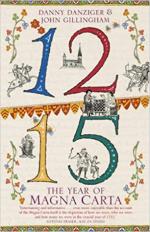 | 1215: The Year of Magna Carta (2004) On 15 June 1215, rebel barons forced King John to meet them at Runnymede. They did not trust the King, so he was not allowed to leave until his seal was attached to the charter in front of him.
This was Magna Carta. It was a revolutionary document. Never before had royal authority been so fundamentally challenged. Nearly 800 years… |
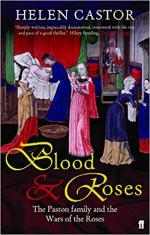 | Blood and Roses (2005) The Wars of the Roses turned England upside down. Between 1455 and 1485 four kings, including Richard III, lost their thrones, more than forty noblemen lost their lives on the battlefield or their heads on the block, and thousands of the men who followed them met violent deaths. As they made their way in a disintegrating world, the… |
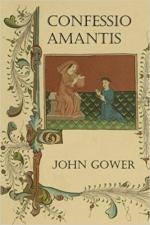 | Confessio Amantis: Tales of the Seven Deadly Sins (2018) Confessio Amantis ("The Lover's Confession") is a 33,000-line Middle English poem by John Gower, which uses the confession made by an ageing lover to the chaplain of Venus as a frame story for a collection of shorter narrative poems. According to its prologue, it was composed at the request of Richard II. It stands with the works of… |
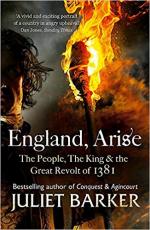 | England, Arise: The People, the King and the Great Revolt of 1381 (2015) The dramatic and shocking events of the Peasants' Revolt of 1381 are to be the backdrop to Juliet Barker's latest book: a snapshot of what everyday life was like for ordinary people living in the middle ages. The same highly successful techniques she deployed inAgincourt and Conquest will this time be brought to bear on civilian… |
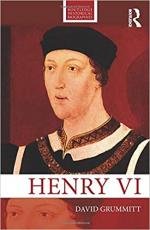 | Henry Vi (2015) In this new assessment of Henry VI, David Grummitt synthesizes a wealth of detailed research into Lancastrian England that has taken place throughout the last three decades to provide a fresh appraisal of the house’s last King. The biography places Henry in the context of Lancastrian political culture and considers how his reign was… |
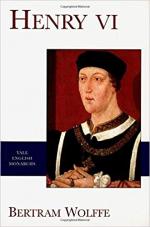 | Henry VI (2001) In this widely acclaimed biography, Bertram Wolffe challenges the traditional view of Henry VI as an unworldly, innocent, and saintly monarch and offers instead a finely drawn but critical portrait of an ineffectual ruler. Drawing on widespread contemporary evidence, Wolffe describes the failures of Henry's long reign from 1422 to… |
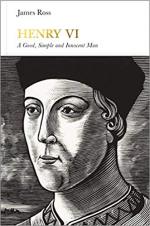 | Henry VI (Penguin Monarchs) (2017) Succeeding to the throne at the age of only nine months, Henry VI had a turbulent reign: he inherited a war with France and, in time, found himself at war with his own nobles. James Ross surveys this eventful life, including Henry's deposition at the hands of Edward IV and his eventual return to the throne. |
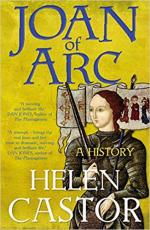 | Joan of Arc (2015) A French peasant girl who heard voices from God, Joan convinced the royal court of her divine calling and became a teenage warrior, leading an army to victory against the English. Eventually captured and put on trial, she was denounced as a heretic and burned at the stake at the age of just nineteen. Five hundred years later, she was… |
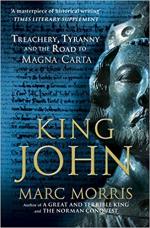 | King John: Treachery, Tyranny and the Road to Magna Carta (2016) King John is familiar to everyone as the villain from the tales of Robin Hood ― greedy, cowardly, despicable and cruel. But who was the man behind the legend?
Drawing on contemporary chronicles and the king's own letters, bestselling historian Marc Morris brings the real John vividly to life. We see how a youngest son with limited… |
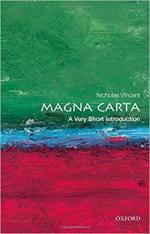 | Magna Carta: A Very Short Introduction (2012) The Magna Carta has long been considered the foundation stone of the British Constitution, yet few people today understand either its contents or its context. This Very Short Introduction introduces the document to a modern audience, explaining its origins in the troubled reign of King John, and tracing the significance of the role… |
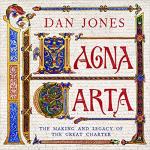 | Magna Carta: The Making and Legacy of the Great Charter (2014) On a summer's day in 1215 a beleaguered English monarch met a group of disgruntled barons in a meadow by the river Thames named Runnymede. Beset by foreign crisis and domestic rebellion, King John was fast running out of options. On 15 June he reluctantly agreed to fix his regal seal to a document that would change the world.
A… |
 | Richard II (1999) Richard II is one of the most enigmatic of English kings. Shakespeare depicted him as a tragic figure, an irresponsible, cruel monarch who nevertheless rose in stature as the substance of power slipped from him. By later writers he has been variously portrayed as a half-crazed autocrat or a conventional ruler whose principal errors… |
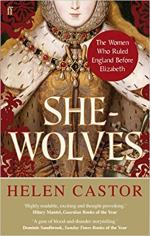 | She-Wolves: The Women Who Ruled England Before Elizabeth (2011) In medieval England, man was the ruler of woman, and the King was the ruler of all. How, then, could royal power lie in female hands?
In She-Wolves, celebrated historian, Helen Castor, tells the dramatic and fascinating stories of four exceptional women who, while never reigning queens, held great power: Matilda, Eleanor of Aquitaine… |
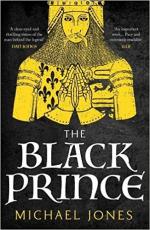 | The Black Prince (2018) In 1346, at the age of sixteen, he won his spurs at Crécy; nine years later he conducted a brutal raid across Languedoc; in 1356 he captured the king of France at Poitiers; as lord of Aquitaine he ruled a vast swathe of southwestern France. He was Edward of Woodstock, eldest son of Edward III, but better known to posterity as 'the… |
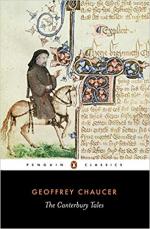 | The Canterbury Tales (2005) At the Tabard Inn in Southwark, a jovial group of pilgrims assembles, including an unscrupulous Pardoner, a noble-minded Knight, a ribald Miller, the lusty Wife of Bath, and Chaucer himself. As they set out on their journey towards the shrine of Thomas a Becket in Canterbury, each character agrees to tell a tale. The twenty-four… |
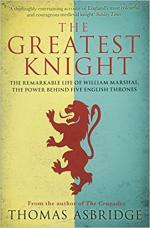 | The Greatest Knight: The Remarkable Life of William Marshal, the Power behind Five English Thrones (2015) William Marshal was the true Lancelot of his era - a peerless warrior and paragon of chivalry -yet over the centuries, the spectacular story of his achievements passed from memory. Then, in 1861, a young French scholar stumbled upon the sole surviving copy of an unknown text, later dubbed the History of William Marshal. This richly… |
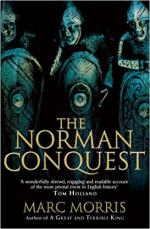 | The Norman Conquest (2013) An upstart French duke who sets out to conquer the most powerful and unified kingdom in Christendom. An invasion force on a scale not seen since the days of the Romans. One of the bloodiest and most decisive battles ever fought. This riveting book explains why the Norman Conquest was the single most important event in English history… |
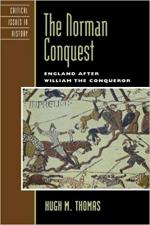 | The Norman Conquest: England after William the Conqueror (2007) Exploring the successful Norman invasion of England in 1066, this concise and readable book focuses especially on the often dramatic and enduring changes wrought by William the Conqueror and his followers. From the perspective of a modern social historian, Hugh M. Thomas considers the conquest's wide-ranging impact by taking a fresh… |
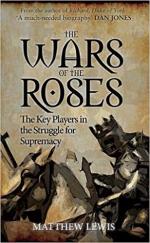 | The Wars of the Roses: The Key Players in the Struggle for Supremacy (2016) In the second half of the fifteenth century, for over thirty years, civil war tore England apart. However, its roots were deeper and its thorns were felt for longer than this time frame suggests.
The Wars of the Roses were not a coherent period of continual warfare. There were distinct episodes of conflict, interspersed with long… |
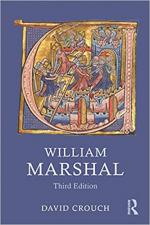 | William Marshal (2016) David Crouch’s William Marshal, now in its third edition, depicts this intriguing medieval figure as a ruthless opportunist, astute courtier, manipulative politician and a brutal but efficient soldier. Born the fourth son of a minor baron, he ended his days as Earl of Pembroke and Regent of England, and was the only medieval knight… |

